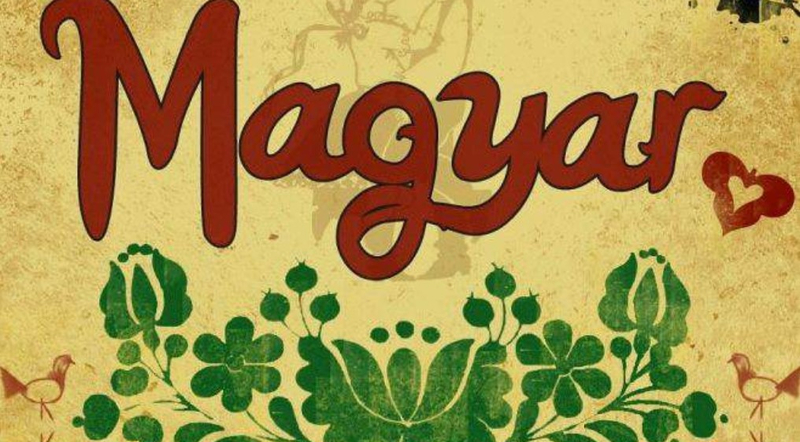It is natural for us, since it is the first language we learn, and we are surrounded by Hungarian sentences on a daily basis, so it would be difficult for us to describe exactly what the Hungarian language sounds like. Foreigners don't paint a uniform picture of it either: we looked for what Hungarian sounds like to those who don't understand it.
According to public opinion, Hungarian is one of the most difficult languages in the world to learn - at least that's what we like to say, thus putting our own mother tongue on a high shelf and forgetting for a moment that anyone who learns Arabic, Japanese or Chinese must also learn new characters. . But it's okay to be proud of the Hungarian language, because that's the most effective way to preserve it.
This is what artificial intelligence says about the Hungarian language
How do you see, or more precisely, how do others see Hungarian? Digging into the depths of Quora and Reddit, we found a variety of opinions on the subject, and these paint a much more nuanced picture than that it is a beautiful but terribly complicated language in our case.
Let's start with what artificial intelligence answers to the question! The Quore bot puts it this way: “Describing the sound of a language to someone who doesn't speak that language is a fairly subjective and difficult task.
The Hungarian language has been described as having a unique, melodious and somewhat mysterious sound for those who do not know it.
Hungarian is a Finno-Ugric language that is quite different from most European languages, so its sound may be less familiar to speakers of Indo-European languages such as English, Spanish, or French. The vowel harmony and consonant congestions give it a characteristic quality. Some describe the Hungarian language as rhythmic and melodic, with a mixture of soft and hard sounds. The language also has a wide range of vowels and consonants, which can contribute to its unique sound.”
Medieval language, unlike anything else
Actually, we can agree on everything, but what people hear from Hungarian can be a better source than robots. Here are some reviews!
"The sound of Hungarian does not remind me of any language I know. It's very different and most people pronounce the words softly, I would start learning if it wasn't so complicated. What I especially like about it is that it is an additive language" -
a Serbian native speaker writes about Hungarian.
“To me, as a German, it sounds like medieval German. On the one hand, it sounds medieval and old to me, for some reason it reminds me of castles and dragons.
This is basically how I imagine a stereotypical Central or Eastern European king or peasant to speak.
I'm sure it's because my exposure to the Hungarian language is limited to "István a király" and a few songs, but I can't really explain why I feel this way.
a German shared his thoughts.
"As a Turk, Hungarian has always seemed like a melodious language to me. When my Hungarian friends spoke, I always felt that if I listened carefully, I would understand. It doesn't sound strange or unfamiliar to me. It doesn't bother my ears, it's like a soft song. By the way, Hungarians can pronounce some Turkish words like a native speaker after just a few tries. Turks can also pronounce some Hungarian words like Hungarians," a Turkish netizen pointed out an interesting fact.
It's like he's a winded Finn
“I really like the sound of it. But I don't know a single word of Hungarian, only foreign words that we took over from Hungarian. Hungarian sometimes reminds me of Swedish or Czech, but only because all three languages seem to me to be melodious and rhythmic, not monotonous. It sounds nice, but it's probably very difficult for native Slavic speakers to learn Hungarian," said a Croatian commenter.
"The mother of one of my students is Hungarian, and sometimes she speaks to her children in her mother tongue and in Finnish. To me, Hungarian sounds a lot like Finnish, as if the words are the same, but the letters are in a different order.
My student's father told me that he once fell asleep on a flight with Hungarians, and when he woke up, he thought he had a stroke or something, because he thought they were speaking Finnish, but he just didn't understand the language."
- a Finnish netizen told the interesting story.
"It's completely confusing, I don't recognize any rules in it. I can come up with words similar to most languages, but this is not the case with Hungarian. It doesn't even sound half Finno-Ugric to me. It is simply incomprehensible, a wall of sounds that do not come together into any meaningful unity. I'm quite sure that I didn't even manage to say the word 'please' properly in Hungarian," says one person, who did not reveal his nationality, while another writes that it's like Morse code, which drops an octave to the end of the sentence.
It is not of this world
"For the Czechs, the Hungarian language sounds completely alien - it does not belong to any of the European language groups that we consider general, i.e. Germanic, Romanian and Slavic languages. Even seemingly international words are replaced by some incomprehensible words in Hungarian," says a Czech netizen.
"I think the Hungarian language came from space. There is absolutely no similarity with the Slavic languages spoken in the surrounding countries. The closest language would be Finnish with very few similarities. It's as if someone worked very hard to create a completely unique language, and that person succeeded (he probably also created the Basque language!)”
says the most extreme view.
It is quite certain that it is a unique and not easy language in the eyes of foreigners, if we can rely on these insights.













